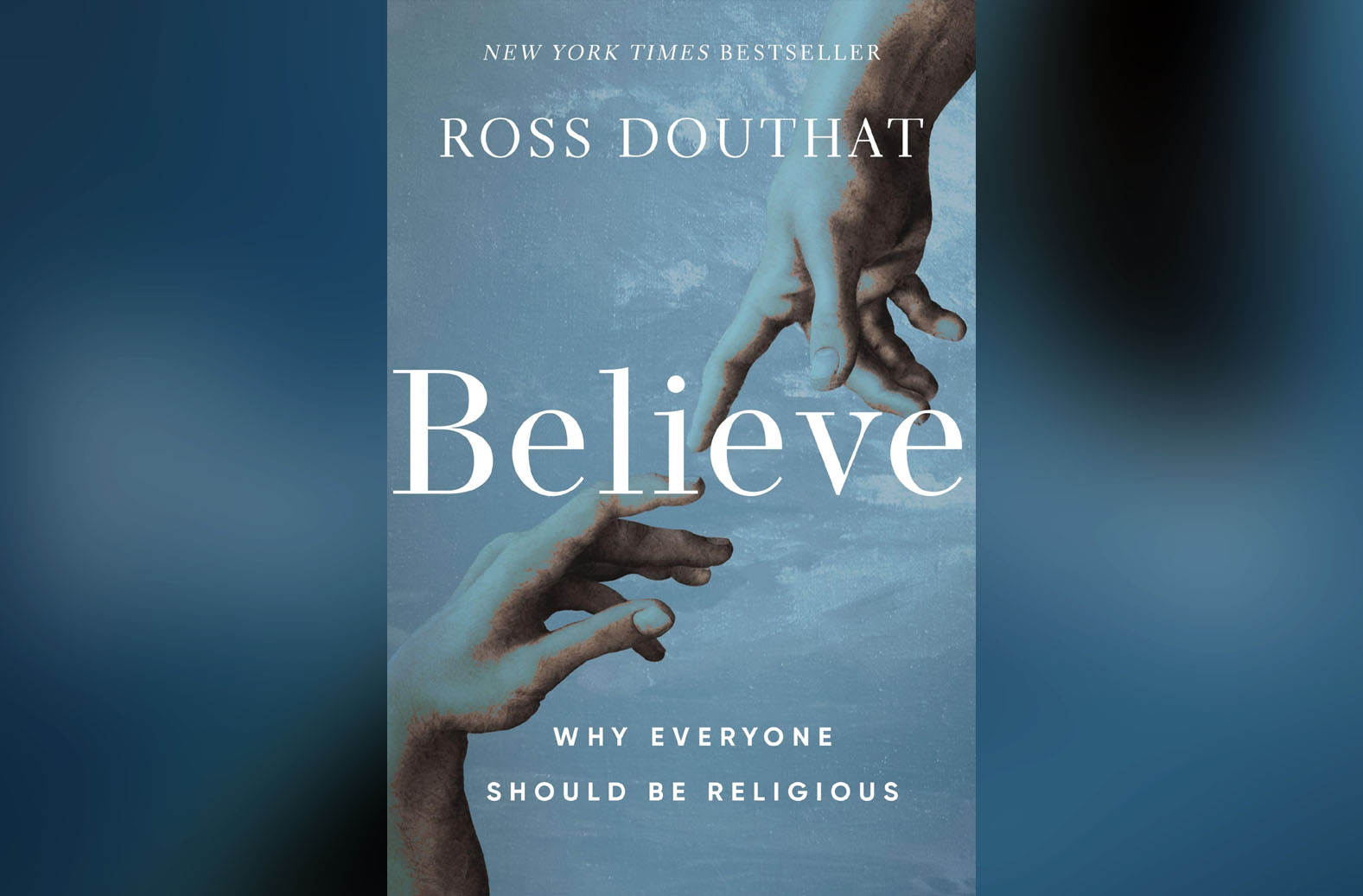There’s a familiar story our society tells itself about the history of religion. It goes like this:
Since the dawn of time, humans have held superstitious beliefs about a divine creator or a pantheon of gods who created and ruled the universe. These beliefs went mostly unchallenged for millennia, until just a few centuries ago when the scientific revolution revealed them to be myths.
First, Copernican astronomical discoveries revealed that the earth did not sit at the center of a harmonious and orderly universe, but rather that it was merely one random rock orbiting one random star in a shapeless morass of unfathomable emptiness.
And then, as if this wasn’t bad enough, Darwin revealed that humans were not “created in God’s image,” but rather that humans are merely a clever primate that had evolved, like everything else, through the blind processes of natural selection.
And so God was dethroned and the universe was disenchanted.
In his new book, “Believe: Why Everyone Should Be Religious,” New York Times columnist Ross Douthat argues that this story is in serious need of an update.
If the discoveries of Copernicus and Darwin dethroned God, Douthat argues, the advances of recent physics have gone a long way to restoring Him. In ways not previously understood, for instance, our universe’s physical laws have been revealed to be “fine-tuned for life’s emergence.” This, according to Douthat, is evidence of a “fashioned” universe.
There’s also the mysterious “key and lock” relationship of mind and cosmos—the fact that a random primate in a “backwater” (like planet Earth) of a random galaxy in an ever-expanding universe has the cognitive capacities to behold and understand that universe, explicating its laws and cracking its codes with a progress that has yet to encounter any hard limit. For Douthat, this goes some way to restoring mankind to the central position it held in the religious cosmologies of old, making the unceasing advance of science an argument for religious belief, not against it.
“The long arc of science,” Douthat writes, “initially seems to bend away from religion by undermining certain specific scriptural or dogmatic claims, [but] ultimately bends back by confirming humanity’s unique position in a universe strangely suited to both our bodies and our minds.”
The idea that belief in God may actually be rational will certainly be of interest to Jewish readers. Jews are both a highly educated population in America as well as a highly atheist population, with rates of disbelief ten percent higher than that of the general public according to a recent Pew study.
But even among Jews who do believe, there is a kind of reluctance to go all-in on God—a reticence when it comes to talking about God and a Maimonidean distrust of anything with the whiff of supernaturalism.
Go to a church and you might hear Christians talking about God as if He was a friend they spent the morning catching up with over coffee. At the church down the street, they’ll be leaping and crying out to the heavens with improvised praises and hallelujahs.
Not surprisingly, this is not what I see at synagogues, where the discussion is more intellectual, focusing on the interpretation of the Torah portion and matters of law and custom.
This has certainly been my experience in rabbinical school. Over the past five years at Hebrew College, my fellow students and I have discussed and debated halacha, prayer, interpretations of Torah, Israel, Zionism, Palestine, and much else, but we haven’t talked much about God.
Not everyone is happy with this situation. I know many Jews who long for a closer relationship with God. Even many of those who don’t believe, wish that they did believe, or that they could believe.
Perhaps this is what it means to live in a disenchanted world.
Ultimately, as Abraham Joshua Heschel knew, the greatest antidote to this view of things is the experience of awe—what he called “radical amazement.” Nothing will sooner shake one from one’s materialist orthodoxies than turning to the great mysteries that surround us at every moment.
One such mystery is consciousness itself, and Douthat dedicates quite a bit of space to the so-called “hard problem of consciousness,” the question of how, in an allegedly mindless universe, certain clumps of matter suddenly start having felt experiences.
Another such mystery—perhaps the greatest mystery of all—is the question of why there is something instead of nothing.
There are those who believe that these mysteries will be solved in time and that, once understood, they will no longer seem mysterious. To such individuals, ascribing any theological significance to these mysteries would be to fall prey to the “god of the gaps” fallacy, in which God is used to explain away the rapidly shrinking “gaps” left by an ever-expanding materialist understanding of the universe.
But there are others (myself included) who believe that these particular mysteries—consciousness and being—are qualitatively different from other scientific unknowns. Unlike the question of why the sky is blue or how to cure a disease, we will never truly be able to understand this most basic nature of our existence and our universe. The physical cannot contain its own explanation. Therefore, something beyond the physical, something utterly transcendent, must be the ground of all that we are and all that we know. According to David Bentley Hart, a theologist whom Douthat quotes and whose wonderful book “The Experience of God” was clearly an inspiration for “Believe,” this transcendent ground of reality is what we mean when we talk about God.
These mysteries have been dismissed and ignored by what Douthat calls “official knowledge.” Perhaps also they have been dismissed and ignored by official Judaism. But once you begin to really consider them, there is a feeling of thrilling disorientation, like being on a roller coaster. This is radical amazement.
For many of us, this sense of awe is distinctly lacking from our religious lives. Reading Douthat’s book is a suitable first step towards recovering it.
Matthew Schultz is a Jewish Journal columnist and rabbinical student at Hebrew College. He is the author of the essay collection “What Came Before” (Tupelo, 2020) and lives in Boston and Jerusalem.




